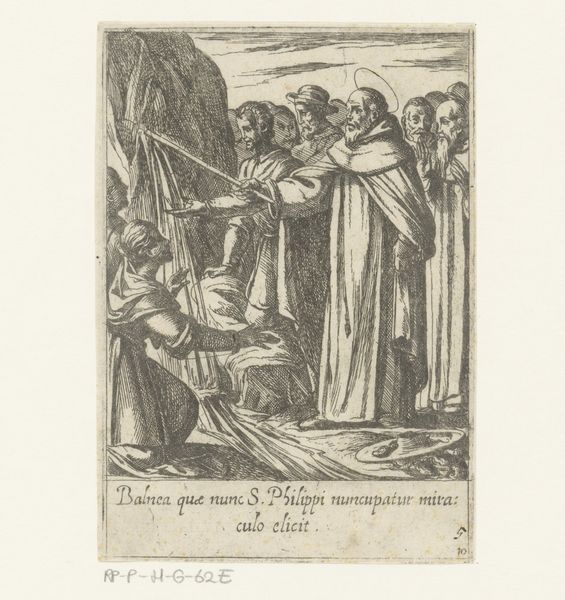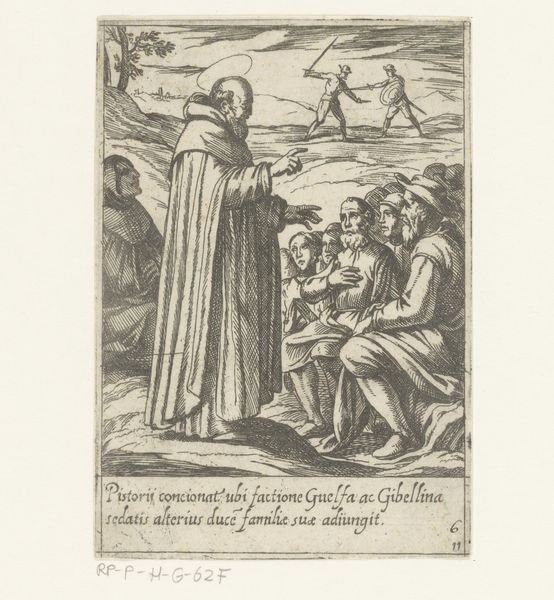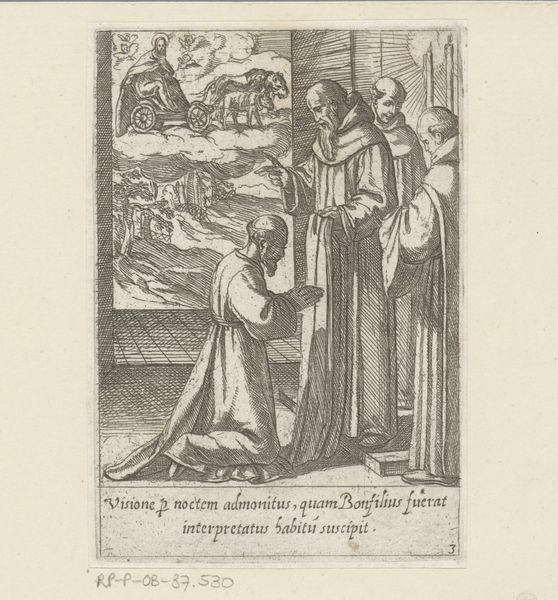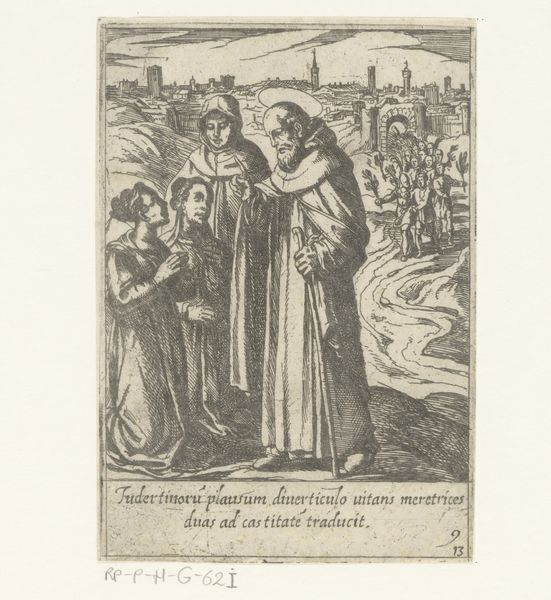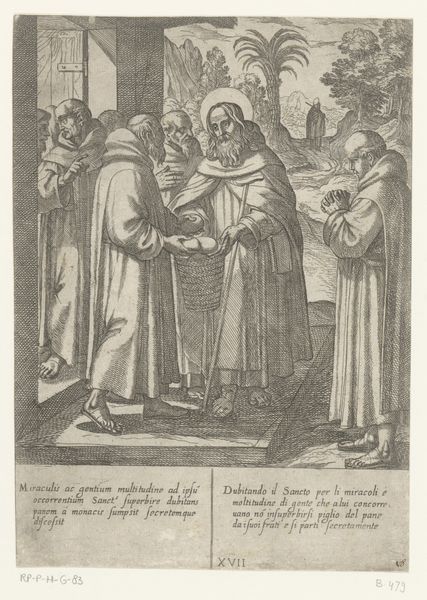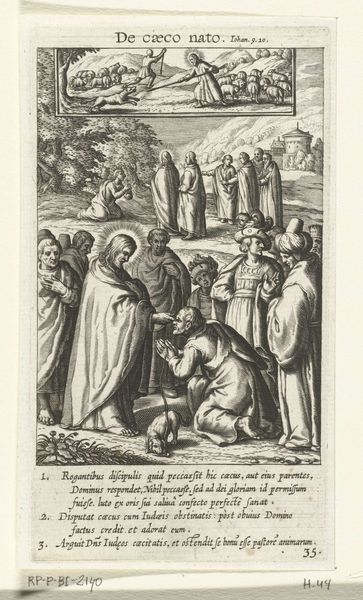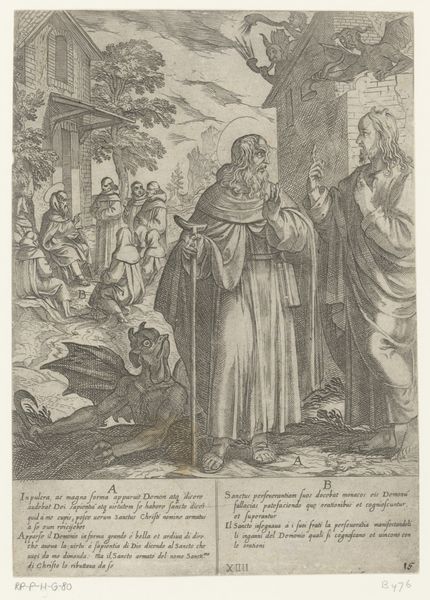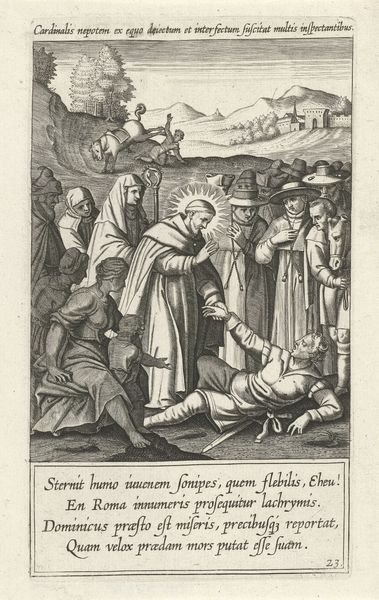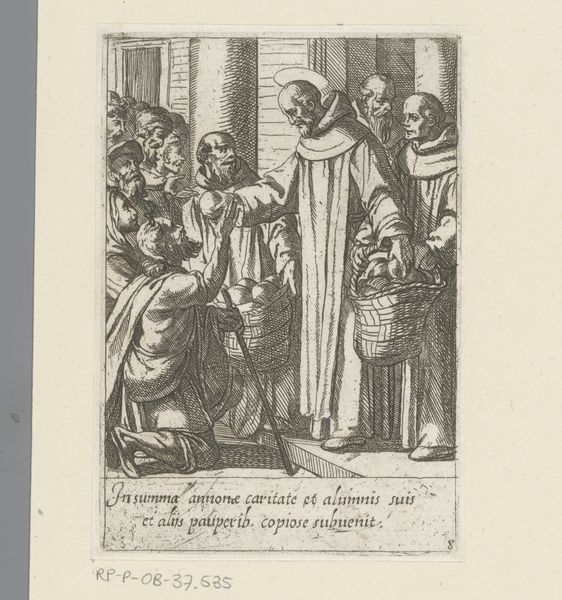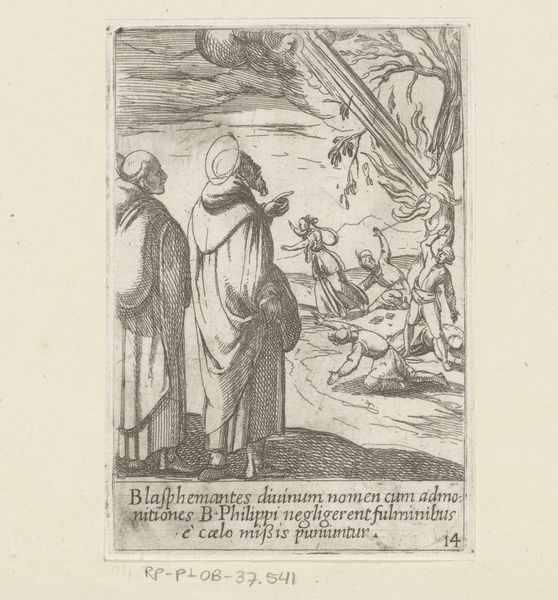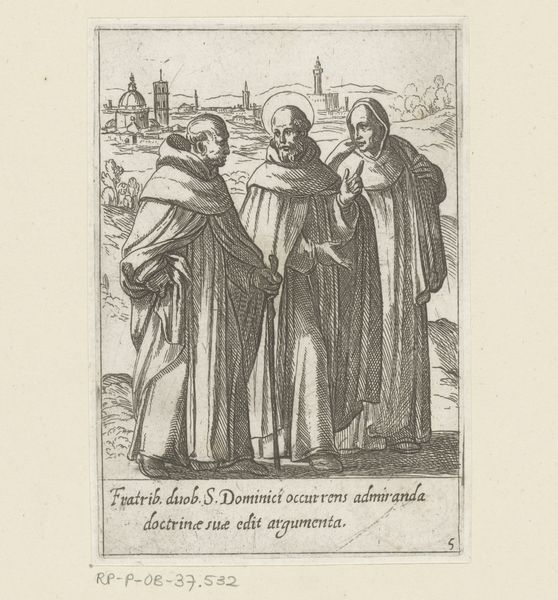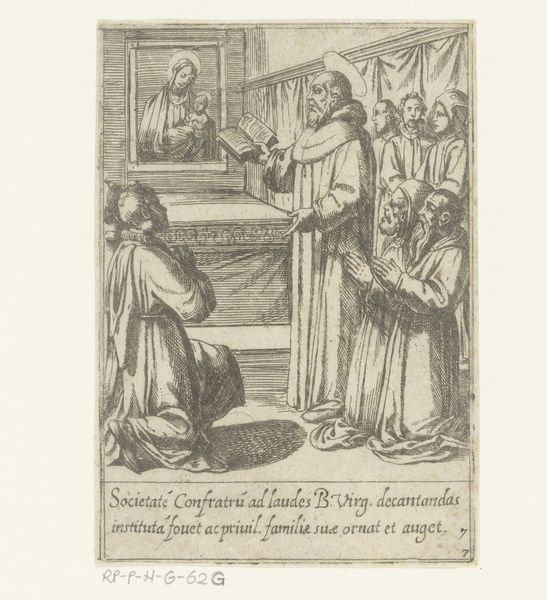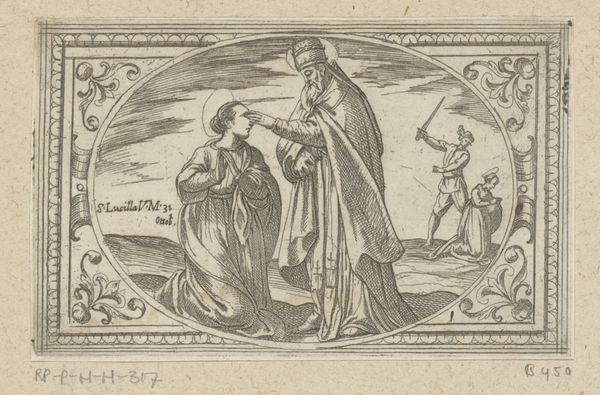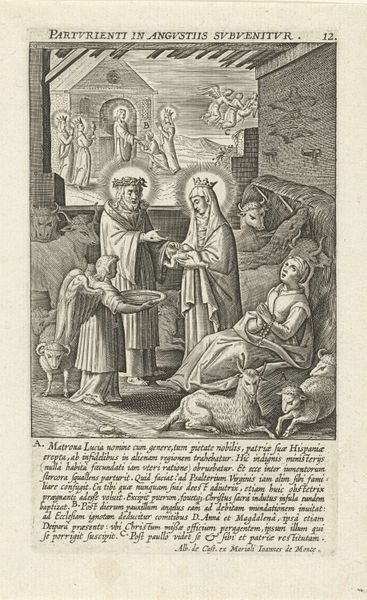
print, engraving
#
baroque
# print
#
landscape
#
figuration
#
genre-painting
#
history-painting
#
engraving
Dimensions: height 115 mm, width 80 mm
Copyright: Rijks Museum: Open Domain
Antonio Tempesta made this print, depicting Saint Phillip healing a leper, around the turn of the 17th century. It is an etching, meaning the artist covered a metal plate with a wax resist, drew this image into the wax, and then submerged the plate in acid. The acid bit into the exposed metal, leaving behind an impression that could then be inked and printed. The relatively fine lines of the print are characteristic of this process, allowing for considerable detail. This was crucial for Tempesta, who specialized in precisely rendered battle scenes. Notice the incredible detail in the landscape, and the contrast between the smoothness of Phillip’s robes and the leper’s skin. Etching was a relatively recent technology at this time. The wide circulation of prints allowed artists like Tempesta to reach broader audiences, democratizing images for those who couldn't afford paintings. In this way, the print participates in a larger shift in art history, where the status of the ‘unique’ artwork is tested by the power of reproduction.
Comments
No comments
Be the first to comment and join the conversation on the ultimate creative platform.
